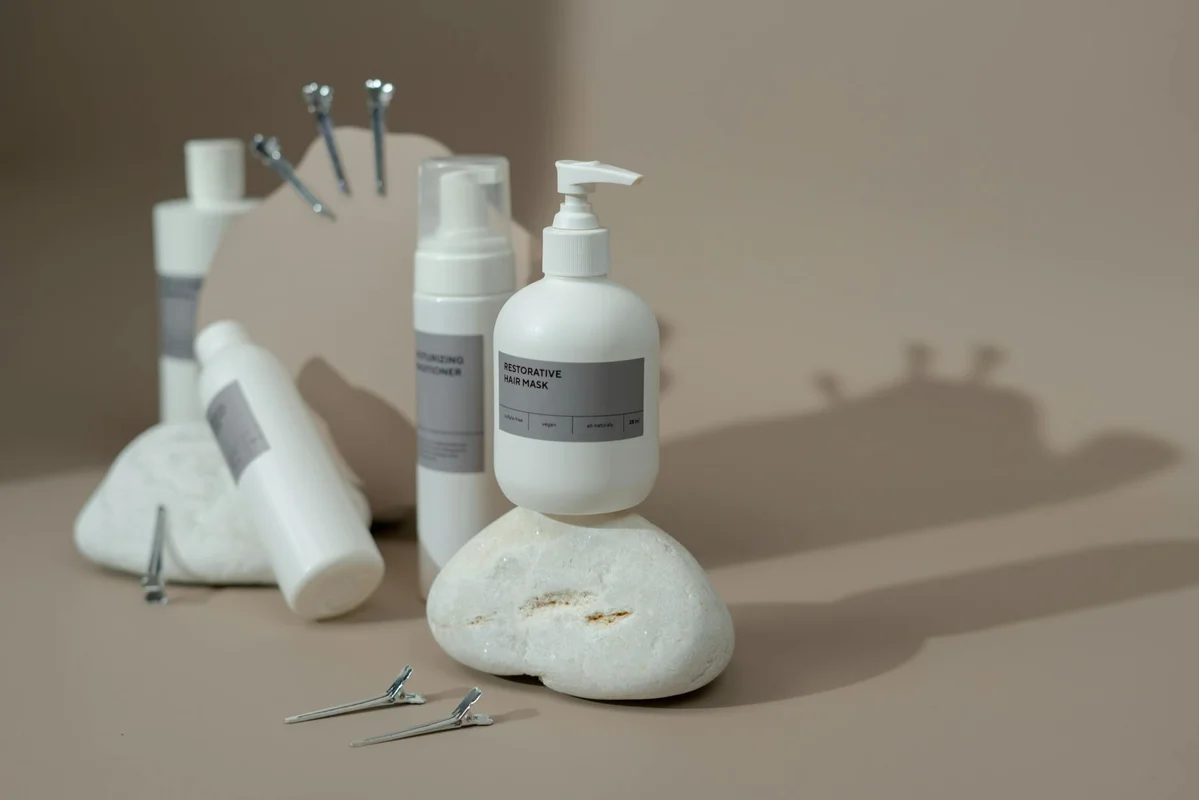Estimated Reading Time: 6 minutes
HHy there! If you’re anything like me, you probably started noticing a little more’scalp real estate’than you’d prefer in the mirror.
Thinning hair can be a real confidence buster.
But thankfully, we live in an age where effective hair restoration products that work are available.
This isn’t about miracle cures or snake oil – it’s about real solutions backed by science and, crucially, results.
Let me be frank: dealing with hair loss isn’t fun.
I recall the sinking feeling I got every time I ran my hand through my hair and felt it was getting sparser.
It started subtly, then became more noticeable.
I tried everything – from fancy shampoos promising the moon to expensive salon treatments that left me feeling emptier in my wallet than on my head.
But I kept searching, and along the way, I learned a lot about what actually makes a difference.
Before diving into hair restoration products that work, it’s important to understand why hair loss occurs in the first place.
The most common type, androgenetic alopecia (male-pattern baldness), is primarily genetic.
However, other factors also play a role, including hormonal imbalances, stress, poor nutrition, and certain medical conditions.
It’s a complex interplay, which is why there’s no one-size-fits-all solution. Recognizing the causes helps you choose the best products.
There’s a common misconception that washing your hair frequently leads to hair loss.
Actually, regular washing, coupled with the right hair restoration products that work, can keep your scalp healthy and promote hair growth.

It’s more about *how* you wash your hair and the products you use, not the frequency.
When talking about hair restoration products that work, a few ingredients consistently stand out. First up is minoxidil (Rogaine).
This topical medication has been around for years and is available over the counter. It works by stimulating hair follicles, promoting growth.
For me, it was a slow burn, not an overnight miracle, but I did start seeing noticeable improvements after a few months.
It’s important to be patient and consistent with this one.
Finasteride (Propecia), another key player, is a prescription medication.
It works differently, by blocking the conversion of testosterone to dihydrotestosterone (DHT), a hormone that can shrink hair follicles.
Now, finasteride isn’t for everyone, and it comes with potential side effects, so it’s essential to consult a doctor before starting.
It’s a good example of why I always suggest considering personalized solutions.
While minoxidil and finasteride are the most scientifically supported, natural remedies can complement your routine.
Natural oils for hair, like rosemary oil, have shown promise in some studies for promoting hair growth.
These aren’t necessarily going to reverse severe hair loss on their own, but they can support scalp health, and I personally found some benefit from incorporating them.
It is important to find good quality oils.
The way you use these natural elements can also be key.
For instance, a scalp massage, even without any product, can stimulate blood flow, which may contribute to hair growth.
Consider adding this to your daily habits.

Using the right hair restoration products that work is only half the battle. Your lifestyle plays a significant role in hair health.
Diet is huge. A balanced diet rich in protein, vitamins (especially Biotin, D, and iron), and minerals is crucial.
If you’re not getting enough nutrients through food, consider supplements, but always consult your doctor first.
I found that adjusting my diet made a clear difference. Eating a good amount of healthy fats is important too, like those from fish and avocados.
Stress can exacerbate hair loss.
Finding healthy ways to manage stress, like exercise, meditation, or spending time in nature, can make a huge difference.
Remember, your body’s health is about the whole picture.
I’ve landed on a combination that works for me: minoxidil, a targeted shampoo with DHT-blocking ingredients, a scalp massage a few times a week, and a consistent healthy diet with supplements as needed.
It’s not just about the products, but about being consistent with your routine. I have some good results.
Each person will find their ideal combination.
Pro-Tip: Don’t be afraid to experiment, but always prioritize products backed by scientific evidence.
And if you’re unsure, talk to a dermatologist. They can provide a personalized assessment.
There’s a lot of misinformation out there. Let’s clear up some common misconceptions:
There isn’t a single “best” product because everyone is different. We can break down the pros and cons of the most common categories. Minoxidil: Finasteride: Natural Remedies (Rosemary Oil, etc.):
Choosing the right hair restoration products that work comes down to understanding the pros and cons of each and considering your individual needs and tolerance levels.
Finding effective hair restoration products that work is a journey.

It requires patience, persistence, and a willingness to experiment (under professional guidance).
Remember to focus on a holistic approach that incorporates both proven treatments, like minoxidil, and a healthy lifestyle.
The journey of hair restoration is a personal one. Start small, be consistent, and don’t get discouraged. You got this!
And, remember, feeling confident is a huge part of this process.
Take care of yourself inside and out, and you’ll be well on your way to enjoying a fuller head of hair and a greater sense of well-being.
If you enjoyed this article, join our newsletter for weekly health tips!
Frequently Asked Questions
What is the most effective hair restoration product?
There isn’t one single’best’product, as effectiveness varies based on the individual. Minoxidil and finasteride have proven track records. Minoxidil is readily available and has a positive effect on stimulation.
Finasteride, which requires a prescription, has been shown to be effective at slowing and reversing hair loss. It is really dependent on what you are looking for.
Do natural remedies like rosemary oil really work for hair growth?
Some studies suggest that rosemary oil can stimulate hair growth. However, it is not as effective as minoxidil or finasteride. Rosemary oil can be a safe and complementary approach, but it is dependent on the user and the quality of the oil.
For optimal results, it’s best used in combination with other scientifically backed treatments. For some, it has also shown to improve scalp health.
How quickly can I expect to see results from hair restoration products?
Results vary depending on the product and the individual. With minoxidil, you might start seeing small improvements after a few months, while finasteride can take longer to show noticeable effects. It’s crucial to be patient and consistent with your regimen. Some results can depend on any dietary and lifestyle changes made as well.
Are there any side effects I should be aware of when using hair restoration products?
Minoxidil can cause scalp irritation for some people. Finasteride can have more significant side effects, including potential sexual dysfunction, which is why it requires a prescription and medical consultation. Always consult with a healthcare professional before using any hair restoration product to understand the potential risks and benefits.
Can hair restoration products prevent hair loss entirely?
While some products can significantly slow or even reverse hair loss, they may not completely prevent it in all cases. The effectiveness depends on the cause and severity of the hair loss, as well as individual factors.
The most effective treatments often address the underlying causes of hair loss and promote hair growth, but maintenance is often required.




